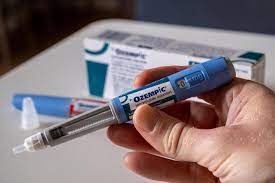In the fast-paced life of modern society, many people choose to drink as a way to relieve stress, cheer themselves up, and improve social interactions. Mr. Zhang and Mr. Li are two such examples. They enjoy a good drink in their leisure time, but Mr. Zhang prefers strong liquors with a high alcohol content, while Mr. Li prefers the lighter taste of beer. Over time, their health conditions have taken noticeably different paths, which makes us wonder: What different effects does long-term consumption of different types of alcohol have on the body?
During an unexpected encounter in the hospital, Mr. Zhang and Mr. Li shared their respective health issues. Mr. Zhang, who had long consumed high-proof spirits, found that his liver was affected, while beer enthusiast Mr. Li suffered joint pain due to being overweight. The doctor warned them that, regardless of whether it’s strong liquor or beer, excessive alcohol intake can harm the body, and it is important to drink in moderation with a focus on health.
The main differences between strong liquor and beer lie in their alcohol concentration as well as their effects on the body.
Strong Liquor: The high alcohol content makes the drinkers more prone to liver diseases, such as alcoholic hepatitis and cirrhosis. The stimulating effect of the alcohol components can also cause digestive system diseases, such as gastritis and gastric ulcers.
Beer: Although it has a lower alcohol content, its high calories and rich carbohydrate content can lead to weight gain, which may in turn lead to obesity and hyperlipidemia. The high purine content in beer may increase the risk of gout and arthritis.
In fact, Mr. Zhang and Mr. Li are typical examples of the effects of long-term drinking: one with liver damage, the other with joint pain. Moreover, excessive consumption of strong liquor can also damage the nervous system, causing memory decline and slow reaction; while the carbonation in beer might aggravate the burden on the stomach. Excessive drinking of either can lead to alcohol dependence and addiction, severely affecting personal life and social order.
Moderate drinking can enhance the quality of life, but excess does just the opposite. Regardless of which type of alcoholic beverage is chosen, moderation should be maintained for the sake of health. When relaxing and socializing, we should be even more concerned about our own health. Faced with life’s pressures, we should not rely on alcohol for temporary peace, but cherish health as the cornerstone for facing challenges and enjoying life. Remember:
Drink in moderation, cherish life; stay away from alcohol dependence, to coexist with health and happiness.
Alcohol is not an indispensable element in life, but an optional indulgence. When we master healthier methods to relieve stress and immerse ourselves in the joy of life, we will realize that true happiness and satisfaction does not come from drinks in a glass. In fact, it originates from the tranquility and contentment deep within our hearts.







